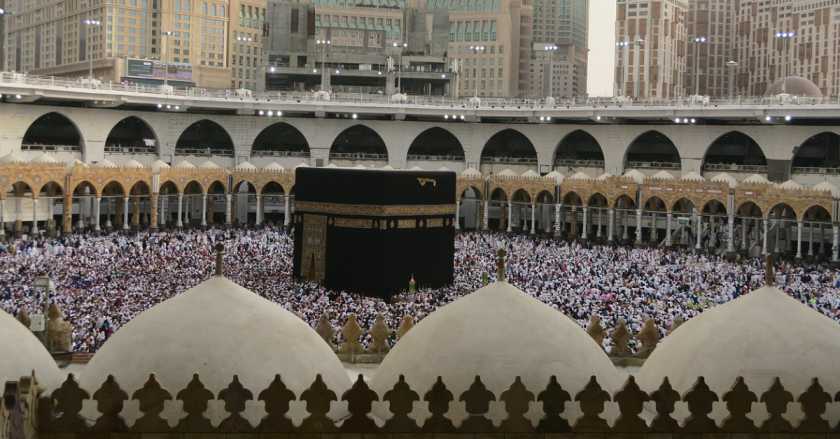Mecca Timeless Significance: The Beating Heart of Islam -2025
Mecca, known as Makkah in Arabic, is the holiest city in Islam. Located in Saudi Arabia, it is the birthplace of the Prophet Muhammad (peace be upon him) and home to the Kaaba, the most sacred site in Islam. Every year, millions of Muslims from around the world visit Mecca for the Hajj pilgrimage, fulfilling one of the Five Pillars of Islam. Beyond its religious importance, Mecca holds deep historical and spiritual significance for Muslims. The Mecca Timeless Significance continues to shape the lives of believers worldwide, making it a place of devotion and unity.
The Kaaba: The Heart of Mecca
At the center of the Grand Mosque (Masjid al-Haram) stands the Kaaba, a cube-shaped structure draped in a black cloth called the Kiswah. Muslims believe that the Kaaba was originally built by Prophet Ibrahim (Abraham) and his son Ismail (Ishmael) as a house of worship dedicated to Allah. The Mecca Timeless Significance is deeply connected to the Kaaba, as it represents the unity and devotion of Muslims worldwide.
Muslims around the world face the Kaaba when they pray, a direction known as the Qibla. This unites all Muslims, no matter where they are, in worship and devotion to one God, further reinforcing the Mecca Timeless Significance in their faith.
The Hajj Pilgrimage: A Sacred Journey
Hajj is an annual pilgrimage to Mecca and is one of the Five Pillars of Islam. It is a religious duty for every Muslim who is physically and financially able to undertake the journey at least once in their lifetime. During Hajj, pilgrims perform rituals that commemorate the actions of Prophet Ibrahim and his family, reflecting the Mecca Timeless Significance in Islamic tradition:
- Circling the Kaaba (Tawaf): Walking around the Kaaba seven times in worship.
- Walking between Safa and Marwah: Remembering Hagar’s search for water for her son, Ismail.
- Standing at Arafat: A time of deep prayer and reflection, considered the most important part of Hajj.
- Stoning the Devil (Ramy al-Jamarat): Symbolizing the rejection of evil.
- Sacrificing an Animal (Qurbani): Commemorating Ibrahim’s willingness to sacrifice his son in obedience to God.
Completing Hajj is a deeply emotional and spiritual experience that strengthens a Muslim’s faith and brings a sense of unity with the global Muslim community (Ummah), highlighting the Mecca Timeless Significance in fostering brotherhood and devotion.
Umrah: The Lesser Pilgrimage
In addition to Hajj, many Muslims also perform Umrah, a non-mandatory pilgrimage to Mecca that can be undertaken at any time of the year. While Umrah does not replace Hajj, it carries great spiritual rewards and allows Muslims to visit the sacred city outside of the Hajj season. The Mecca Timeless Significance ensures that even outside of Hajj, the city remains a beacon of faith and spirituality for millions.
Mecca’s Importance in Islamic History
Mecca is not just a place of worship but also a city with a rich history. It was in Mecca that Prophet Muhammad (peace be upon him) received his first revelation from Allah through Angel Jibreel (Gabriel). The Mecca Timeless Significance is evident in the struggles and triumphs of Islam’s early days. The city faced great challenges as Islam began to spread, and Prophet Muhammad and his followers later migrated to Medina in what is known as the Hijrah. Eventually, Mecca was peacefully reclaimed, and the Kaaba was restored as a pure place of worship for Muslims, cementing its Mecca Timeless Significance in Islamic history.
Modern-Day Mecca
Today, Mecca is a vibrant city that hosts millions of visitors every year. It has undergone massive expansions to accommodate the growing number of pilgrims, with the Grand Mosque being one of the largest and most visited religious sites in the world. Despite modernization, the Mecca Timeless Significance remains unchanged, as it continues to be the beating heart of the Islamic world.
Conclusion
Mecca is more than just a city—it is a symbol of faith, unity, and devotion. For Muslims, visiting Mecca is a lifelong dream and a deeply spiritual experience. Whether through daily prayers, the Hajj pilgrimage, or the performance of Umrah, Mecca connects Muslims to their faith in profound ways. The Mecca Timeless Significance makes it a place of peace, reflection, and closeness to Allah. As the holiest city in Islam, Mecca will always remain at the core of Muslim devotion and worship, continuing to inspire and unite believers across generations.
More Blogs Islamic Wisdom: Solving Today’s Chaos with Timeless Values -2025


